KSU, Marietta, GA, USA | December 19-21, 2022


workshop/symposium speakers
Workshop: Online Simulations and Remote Access Visualization Tools for Science & Technology Curricula |
|
|
Dr. Ahmed S. Khan
Fulbright Specialist Scholar (2017-2022) |
|
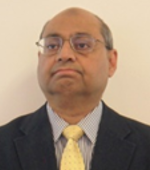
Dr. Ahmed S. Khan |
|
|
|
|
|
Speaker Biography:
Dr. Khan has more than forty years of progressively responsible experience in instruction (online and onsite), applied research, curriculum development, program and institutional accreditation, management, and supervision of academic programs at DeVry University. Dr. Khan held many academic positions that include Senior Processor, Chair, and Dean of the College of Engineering & Information, DeVry University, Addison, Illinois, USA. Dr. Khan also served as the National Curriculum Manager at the national headquarters of DeVry University, where he supervised and managed curriculum development and implementation of BSEEt & MSEE programs at 25 DeVry campuses located in the United States and Canada. Dr. Khan received an M.Sc (Applied Physics) from University of Karachi, an MSEE from Michigan Technological University, an MBA from Keller Graduate School of Management, and his Ph.D. from Colorado State University. His research interests are in the areas of Nanotechnology, New Teaching & Learning Techniques, and Social and Ethical Implications of Technology. He is the author of many educational papers and presentations. He has authored/coauthored many technical books, including the Telecommunications Factbook, and Science, Technology & Society (STS) series of books that include Technology and Society: Issues for the 21st Century & Beyond, and Nanotechnology: Ethical and Social Implications, to stimulate, inspire, and provoke awareness of technology’s impact on society. Dr. Khan is a senior member of the Institute of Electrical and Electronics Engineering (IEEE), and a member of American Society of Engineering Education (ASEE). Dr. Khan also serves as program evaluator for the accreditation agency ABET. | |
Workshop: Online Simulations and Remote Access Visualization Tools for Science & Technology Curricula |
|
|
Dr. Salahuddin Qazi
Emeritus Professor School of Information Systems and Engineering Technology State University of New York Institute of Technology (SUNYIT), Utica, New York |
|
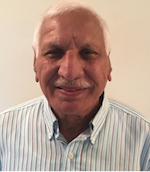
Dr. Salahuddin Qazi |
|
|
|
|
|
Speaker Biography:
Salahuddin Qazi holds a Ph.D., degree in electrical engineering from the University of Technology, Loughborough, England, UK. He is currently an Emeritus Professor and past chair of School of Information Systems and Engineering Technology at the State University of New York Institute of Technology, Utica, New York. Prior to becoming Professor Emeritus, he spent a year completing a NSF (National Science Foundation) funded project on developing instructional material for "Visualization and Manipulation of Nanoscale Components using Atomic Force Microscopy" as a Principal Investigator. He is currently involved in consulting activities for emerging technologies and higher education and have recently completed a book on "Standalone Photovoltaic Systems for Disaster Relief and Remote Areas. He is also a member of an industrial advisory board for the Engineering Technology department for the University of Maryland Eastern Shores, Princess Anne, MD. Dr. Qazi has participated as an invited speaker and presenter in several international conferences and workshops. He was a CO-PI for a US-Pakistan conference on “High Capacity Optical Networking and Enabling Technology,” which was jointly supported by the National Science Foundation (NSF) of USA and the Higher Education Commission (HEC) of Pakistan. He is recipient of several awards including the William Goddel award for research creativity at SUNYIT and engineering professionalism by Mohawk Valley Engineering Executive Committee, and forging closer relations with the IEEE Mohawk Valley section. Dr. Qazi is a life member of IEEE. | |
Workshop: Online Simulations and Remote Access Visualization Tools for Science & Technology Curricula |
|
|
Dr. Atilla Ozgur Cakmak
Grand Valley State University, Michigan |
|
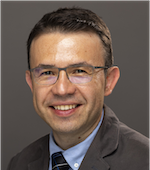
Dr. Atilla Ozgur Cakmak |
|
|
|
|
|
Speaker Biography:
Atilla Ozgur Cakmak graduated from Sabanci University, Istanbul, Turkey with a BSc degree in Microelectronics Engineering in 2003. He obtained his MSc degree in Computer Science and Electronics Engineering also from Sabanci University in 2005. Dr. Cakmak earned his PhD degree from Bilkent University, Ankara, Turkey in 2012 from the Department of Electrical and Electronics Engineering. After a brief postdoctoral experience at Bilkent University within NANOTAM (Nanotechnology Research Center), Dr. Cakmak joined Penn State in 2013 as a postdoctoral researcher to work on thin film solar cells. Dr. Cakmak got promoted to Assistant Teaching Professor at Penn State within the Department of Engineering Science and Mechanics in 2018. He taught graduate and undergraduate courses in the field of nanotechnology and nanofabrication. Dr. Cakmak is currently an Assistant Professor of Electrical Engineering in School of Engineering in Grand Valley State University, Michigan. Dr. Cakmak co-authored more than 20 papers in the leading journals in his expertise field of nanophotonics and microwave engineering. Dr. Cakmak also contributed with educational publications to the field of nanotechnology and nanoscience. He is an editor in Journal of Advanced Technological Education and a guest editor of MDPI. He has also been contributing as a reviewer to various optics/photonics, applied physics and nanotechnology themed journals. | |
Symposium: Secure, Automated and Intelligent 6G and Beyond Networks |
|
|
Muhammad-Zeeshan Asghar
Postdoctoral Researcher Department of Communications and Networking Aalto University, Finland |
|

Muhammad-Zeeshan Asghar, Ph.D. |
|
|
|
|
|
Speaker Biography:
Dr. Muhammad Zeeshan Asghar is CEO of Finnish startup company, Ultra-lean Networks Solutions Pvt Ltd. He is post-doctoral researcher at the department of communication and networking, Aalto University Finland. He was a principal investigator of BusinessFinland funded project of on 5G Cognitive Self-organizing Networks (CSON) at the University of Jyväskylä during the years 2017−2019. He raised 500K euro for the commercialization of his research on 5G. The project outcome is a startup company that provides R&D support to telecom vendor and mobile network operators on AI/ML powered network automation for 5G/6G networks. Prior to this, Muhammad worked as a Research Engineer for Nokia-Siemens Networks Solutions, Finland during 2008-2014. During this work he wrote one patent that was granted in year 2016. His research interests in 5G/6G Radio Access Networks, Open RAN, AI/ML based network automation, private 5G/6G networks and industrial IoT. Muhammad completed his Ph.D. in Wireless Communication at the University of Jyväskylä, Finland in 2016. He has received a several awards, including Future City Challenge (Jyväskylä) Winner 2018 and conference paper award at ICEIC Barcelona 2019. | |
Symposium: Smart City and IoT ApplicationsTitle: Emerging Role of Artificial Intelligence in Smart Cities |
|
|
Dr. Muhammad Ilyas
Professor, College of Engineering and Computer Science, Florida Atlantic University, Boca Raton, Florida |
|
|
Abstract:
Information and Communication Technologies (ICT) have seen tremendous advances in recent years. The most visible and impactful among these are Internet of Things (IoT) and Artificial Intelligence (AI). IoT provides an elaborate platform for collecting data from various applications. AI can analyze this data (thanks to the availability of powerful computing environments) and make intelligent decisions. This combination is leading to a rapid development of smart systems. These systems include smart healthcare, smart transportation, smart energy, smart environment, smart agriculture, smart cities and many more. |
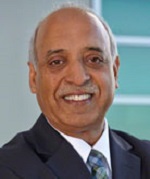
Dr. Muhammad Ilyas |
| A smart city can use AI and ICT in many ways to significantly improve the efficiency of its operations and improve the quality of life of its citizens. AI is increasingly becoming involved in our existence. Many see emergence of AI as a revolution that will impact every aspect of our lives. Some see it as an evolution based on the recent advances in hardware/software technologies, powerful computational platforms, and access to massive amount of data collected through pervasive communication networks such as Internet of Things (IoT). Smart cities can use IoT and AI effectively to improve its operations. These initiatives will certainly improve quality of life of our citizens and promote cohesive, connected, healthier, and happier communities. This talk will capture the current state of AI in smart cities and discuss potential AI applications for further development of smart cities. | |
|
Speaker Biography:
Dr. Mohammad Ilyas is a Professor in the College of Engineering and Computer Science at Florida Atlantic University, Boca Raton, Florida. He has been with the College since 1983. From 1994 to 2000, he was Chair of the Department of Computer Science and Engineering. He served as Associate Dean for Research for the College from 2002 through 2011, and as Dean of the College from 2011 to 2017. From July 2004 to September 2005, he also served the University as Interim Associate Vice President for Research and Graduate Studies. Dr. Ilyas has earned four academic degrees from four different countries. He received his B.Sc. degree in Electrical Engineering from the University of Engineering and Technology, Lahore, Pakistan, in 1976. From March 1977 to September 1978, he worked for the Water and Power Development Authority, Pakistan. In 1978, he was awarded a scholarship for his graduate studies and he completed his MS degree in Electrical and Electronic Engineering in June 1980 at Shiraz University, Shiraz, Iran. In September 1980, he joined the doctoral program at Queen's University in Kingston, Ontario, Canada. He completed his Ph.D. degree Electrical Engineering in 1983. His doctoral research was about switching and flow control techniques in computer communication networks. In 2015, he earned his second Ph.D. in Educational Leadership – Higher Education, from Florida Atlantic University, Boca Raton, Florida. His doctoral research for this degree was about globalization and higher education. Dr. Ilyas has conducted successful research in the field of computer communication networks. His current research interests include wireless sensor networks, Internet of Things, smart systems, healthcare technologies. performance modeling, simulation, and impact of globalization on higher education. He has published one book, 26 handbooks, and over 200 research articles. He has supervised 12 Ph.D. dissertations and 38 M.S. theses to completion. He is currently supervising a group of 11 doctoral students. He has been a consultant to several national and international organizations. Dr. Ilyas is an active participant in several IEEE Technical committees and activities. Dr. Ilyas is a Life Senior Member of IEEE, member of Global Engineering Deans Council (GEDC), Fellow of IIIS, and is listed as a Fulbright Specialist. | |
Symposium: Smart City and IoT ApplicationsTitle: Enabling Technologies for Internet of Things in 6G Networks |
|
|
Dr. Waleed Ijaz
Director, Wireless Communication & Networks (WCN) Research Group, Department of Electrical Engineering, Lakehead University, Barrie, ON, Canada |
|
|
Abstract:
Future wireless networks (beyond fifth generation (5G)/sixth generation (6G) networks) are envisioned to connect satellite, aerial, terrestrial, and sea networks to provide connectivity everywhere and all the time. The objective is to provide connectivity to a large number of devices (known as massive connectivity), to support substantial traffic demands, and expand coverage. In addition, United Nations (UN) Sustainable Development Goals (SDGs) also call for 6G’s contribution. However, the success of SAGSI networks is constrained by several challenges, including resource optimization, when the users are resource-constrained and have diverse requirements and applications. |
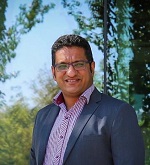
Dr. Waleed Ijaz |
| In this talk, I will start with a brief overview of the requirements and challenges in 6G networks. I will discuss the enabling technologies in 6G research. As examples, I will share my recent research on resource management schemes for massive connectivity in future terrestrial networks, aerial networks, and self-sustainable networks (SSNs) while considering different objectives and constraints, including network scalability, reliability, latency, efficiency (spectral usage and energy consumption), and complexity. The focus is to design novel algorithms and communication protocols for the Internet of things (IoT) networks that have both (i) enhanced network performance in terms of spectrum efficiency, coverage, and energy efficiency and (ii) satisfied a wide range of IoT devices’ requirements and constraints. I will then share future research challenges to develop efficient and low-complexity resource management schemes to tackle the challenges of seamless connectivity of heterogeneous devices anytime and anywhere. | |
|
Speaker Biography:
Waleed Ejaz (S’12-M’14-SM’16) is an Assistant Professor in the Department of Electrical Engineering at Lakehead University, Barrie Campus, ON, Canada. Prior to that he was an Assistant Professor in the Department of Engineering & Applied Science at Thompson Rivers University, Kamloops, BC, Canada. Previously, he held academic and research positions at Ryerson University, Carleton University, and Queen’s University in Canada. He received the B.Sc. and M.Sc. degrees in Computer Engineering from the University of Engineering and Technology, Taxila, Pakistan and the National University of Sciences and Technology, Islamabad, Pakistan, and a Ph.D. degree in Information and Communication Engineering from Sejong University, Republic of Korea. He has co-authored over 90 papers in prestigious journals and conferences and 3 books. His current research interests include the Internet of Things (IoT), energy harvesting, 5G and beyond networks, and mobile edge computing. He is an Associate Editor of the IEEE Communications Magazine, IEEE Canadian Journal of Electrical and Computer Engineering, and the IEEE ACCESS. Dr. Ejaz completed certificate courses on “Teaching and Learning in Higher Education” from the Chang School at Ryerson University. He is a registered Professional Engineer (P.Eng.) in the province of Ontario, Canada. Dr. Ejaz is a senior member of IEEE, a member of ACM, and an ACM distinguished speaker. | |
Symposium: Smart City and IoT ApplicationsTitle: Internet of Things (IoT): Smart World, Technologies, Opportunities and Challenges |
|
| Engr. Shaftab Ahmed, Dr. M. Yasin Akhtar Raja and Dr. Fareena Saqib, UNC Charlotte, USA | |
|
Abstract:
The rapid developments in Information Communications Technologies (ICT) over the past couple of decades have enabled automation and sensing applications to be intelligent, net-aware and a certain level of smartness. Machine to Machine (M2M) communications coupled with wireless sensors connectivity and embedded software have opened domains of new applications. Internet of Things (IoT) is the core of the emerging smart world where the devices can communicate and take intelligent decisions autonomously. |
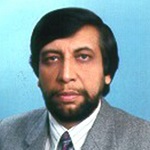
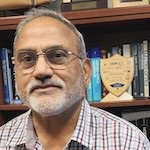
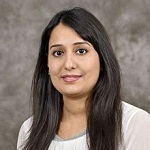
Engr. Shaftab Ahmed, Dr. M. Yasin Akhtar Raja and Dr. Fareena Saqib, UNC Charlotte, USA |
| The evolving IoT architectures use data science tools for flexible handling of data from the Edge, Fog, and Gateway layers in addition to conventional data communication architectures. It leads to flexibility in data services and security management as well. Variety of the topics reviewed and discussed in this talk include, Smart World, Data Analytics and Cloud Services, Ambient Assisted Living, Machine Learning-Artificial Intelligence and Security Challenges of IoTs. | |




 conference program
conference program


